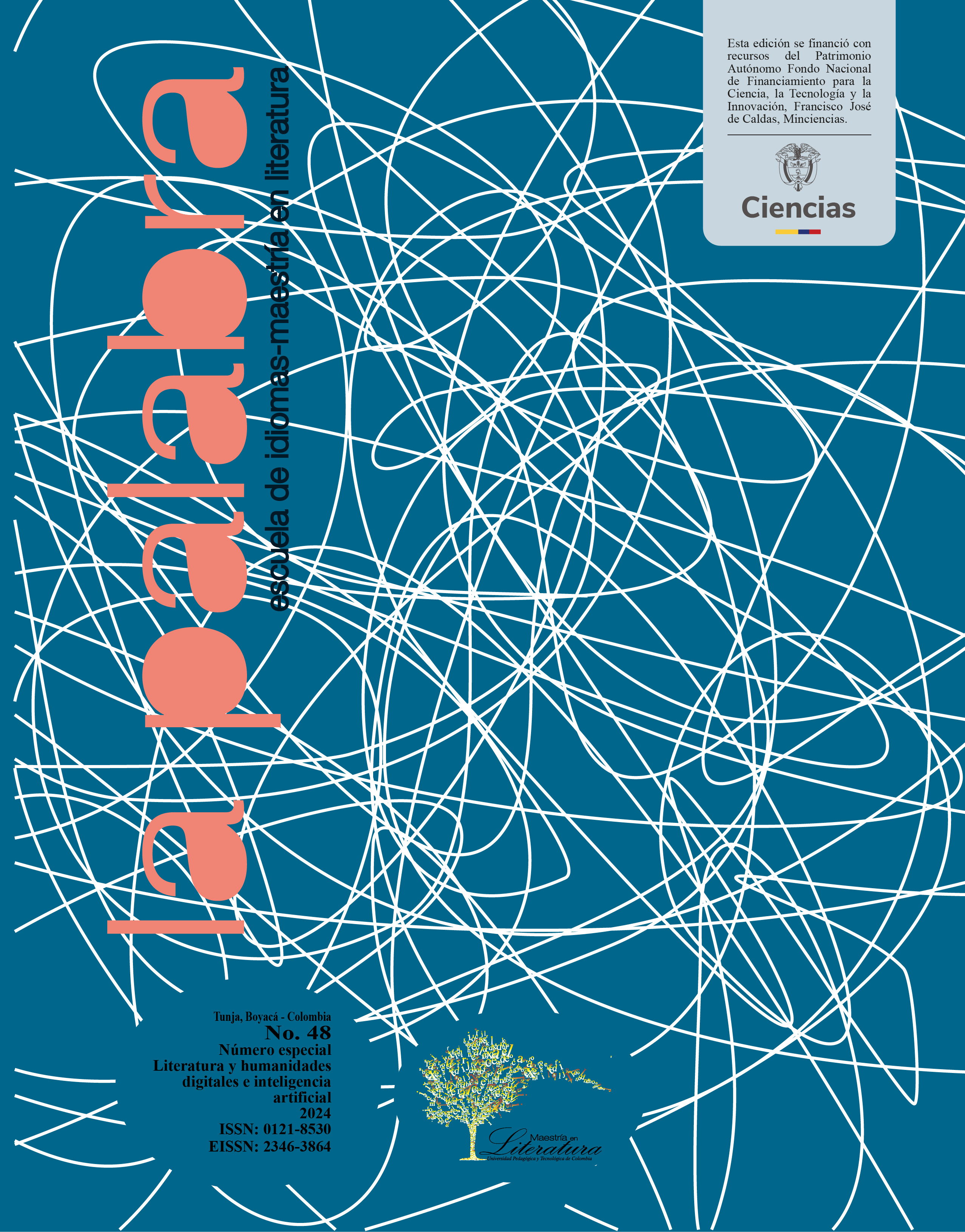Decolonizar as listas de leitura na era da IA: um ensaio na encruzilhada da descolonialidade, da crítica criancista e do Chat GPT

Resumo
Este artigo examina criticamente a ideia de descolonizar as listas de leitura na educação superior, particularmente no contexto de um curso de literatura infantil, indagando a crescente influência da inteligência artificial (IA) na produção de conhecimento. Por meio do uso de referenciais decoloniais e da integração de perspectivas feministas e infantis, o ensaio questiona as aplicações superficiais da decolonialidade como uma forma de “lavagem decolonial”. A partir de uma comparação com as respostas do ChatGPT-3 como estudo de caso, são delineados alguns desafios que surgem quando os discursos decoloniais são úteis às abordagens acadêmicas. Este ensaio argumenta que a IA perpetua as estruturas coloniais do conhecimento e propõe expandir a pesquisa com críticas infantis para imaginar caminhos alternativos. O artigo conclui defendendo a busca por práticas decoloniais mais radicais e imaginativas.
Palavras-chave
infância, listas de leitura, infantilismo, chat GPT, diversidade
Referências
- Adewumi, Barbara, et al. “Cross-Disciplinary, Collaborative and Student-Led: Developing a Change Process for Diversifying Reading Lists.” London Review of Education, vol. 20, no. 1, 2022. Web. 1 de abril de 2024. https://doi.org/10.14324/lre.20.1.01
- Ahmed, Tanveer. “Towards a Decolonial Feminist Fashion Design Reading List.” Art Libraries Journal, vol. 47, no. 1, 2022, pp. 9-13. Web. 3 de abril de 2024. https://doi.org/10.1017/alj.2021.26
- Bird, Karen, and Lesley Pitman. "How Diverse Is Your Reading List? Exploring Issues of Representation and Decolonisation in the UK." Higher Education, vol. 79, no. 5, 2020, pp. 903-920. Web. 11 de abril de 2024. https://doi.org/10.1007/s10734-019-00446-9
- Biswas, Tanu, et al. "Childism and Philosophy: A Conceptual Co-exploration." Policy Futures in Education, vol. 22, no. 5, 2024, pp. 741-759. Web. 23 de abril de 2024. https://doi.org/10.1177/14782103231185178
- De Castro, Lucia Rabello. "Why Global? Children and Childhood from a Decolonial Perspective." Childhood, vol. 27, no. 1, 2020, pp. 48-62. Web. 3 de abril de 2024. https://doi.org/10.1177/0907568219885379
- Deszcz‐Tryhubczak, Justyna, and Macarena García‐González. "Thinking and Doing with Childism in Children's Literature Studies." Children & Society, vol. 37, no. 4, 2023, pp. 1037-1051. Web. 2 de abril de 2024. https://doi.org/10.1111/chso.12619
- Edelman, Lee. No Future: Queer Theory and the Death Drive. Duke UP, 2004. Web. 12 de abril de 2024. https://doi.org/10.1215/9780822385981
- Hernández-Zamora, Gregorio. "De los nuevos estudios de literacidad a las perspectivas decoloniales en la investigación sobre literacidad." Íkala, Revista de Lengua y Cultura, vol. 24, no. 1, 2019, pp. 363-386. Web. 1 de abril de 2024. https://doi.org/10.17533/udea.ikala.v24n02a10
- Hunt, Peter. "Childist Criticism: The Subculture of the Child, the Book and the Critic." Signal - Approaches to Children's Books, no. 43, 1984, pp. 42–59. Printed.
- ---Criticism, Theory, and Children's Literature. Blackwell, 1991. Printed.
- Kelly, Alice. Decolonising the Conrad Canon. Liverpool University Press, 2022. Web. 9 de abril de 2024. https://doi.org/10.2307/j.ctv27zdhz8
- Knudsen, Britta, and Casper Andersen. "Affective Politics and Colonial Heritage, Rhodes Must Fall at UCT and Oxford." International Journal of Heritage Studies, vol. 25, no. 3, 2018, pp. 239-258. Web. 12 de abril de 2024. https://doi.org/10.1080/13527258.2018.1481134
- Le Grange, Lesley, et al. "Decolonising the University Curriculum or Decolonial-Washing? A Multiple Case Study." Journal of Education (University of KwaZulu-Natal), no. 80, 2020, pp. 25-48. Web. 12 de abril de 2024. https://doi.org/10.17159/2520-9868/i80a02
- Luker, Trish. "Decolonising Archives: Indigenous Challenges to Record Keeping in 'Reconciling' Settler Colonial States." Archives and New Modes of Feminist Research, Routledge, 2020, pp. 108-125. Web. 22 de abril de 2024. https://doi.org/10.17159/2520-9868/i80a02
- Mafile’o, Tracie, Clare W. Kokinai and Michelle Redman-MacLaren. "We Story: Decoloniality in Practice and Theory." Cultural Studies, Critical Methodologies, vol. 22, no. 6, 2022, pp. 547-561. Web. 15 de abril de 2024. https://doi.org/10.1177/15327086221105666
- Oriel College. The Rhodes Legacy. Web. 1 de abril de 2024. https://www.oriel.ox.ac.uk/about/the-rhodes-legacy/
- Punch, Samantha. "Why Have Generational Orderings Been Marginalised in the Social Sciences, Including Childhood Studies?" Children’s Geographies, vol. 18, no. 2, 2019, pp. 128-140. Web. 21 de abril de 2024. https://doi.org/10.1080/14733285.2019.1630716
- Quijano, Aníbal. "Coloniality of Power and Eurocentrism in Latin America." International Sociology, vol. 15, no. 2, 2000, pp. 215-232. Web. 27 de abril de 2024. https://doi.org/10.1177/0268580900015002005
- Slachevsky, Paulo. "Desafíos y Amenazas para la Edición Independiente y la Bibliodiversidad en Chile y América Latina." Trama & Texturas, no. 27, 2015, pp. 134-142. Printed.
- Tuck, Eve, and K. W. Yang. "Decolonization Is Not a Metaphor." Decolonization: Indigeneity, Education & Society, vol. 1, no. 1, 2012, pp. 1-40. Printed.
- Véliz, Soledad. "Weird Readings and Little Machines." Children’s Cultures after Childhood, 2023. Web. 7 de abril de 2024. https://doi.org/10.1075/clcc.16.11vel
- Viaene, Lieselotte, et al. "The Walls Spoke When No One Else Would: Autoethnographic Notes on Sexual-Power Gatekeeping within Avant-Garde Academia." Sexual Misconduct in Academia, Routledge, 2023, pp. 208-225. Web. 23 de abril de 2024. https://doi.org/10.4324/9781003289944-17
- Wall, John. "From Childhood Studies to Childism: Reconstructing the Scholarly and Social Imaginations." Children’s Geographies, vol. 20, no. 3, 2019, pp. 257-270. Web. 18 de abril de 2024. https://doi.org/10.1080/14733285.2019.1668912
- Wynter, Sylvia. "Unsettling the Coloniality of Being/Power/Truth/Freedom: Towards the Human, After Man, Its Overrepresentation—An Argument." CR: The New Centennial Review, vol. 3, no. 3, 2003, pp. 257-337. Web. 1 de abril de 2024. https://doi.org/10.1353/ncr.2004.0015
- Young-Bruehl, Elisabeth. Childism: Confronting prejudice against children. Yale University Press, 2012. Printed.
